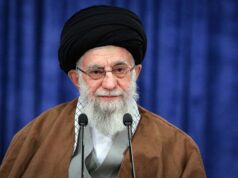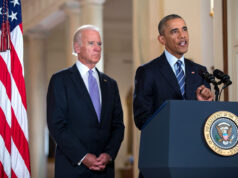Saudi Arabia began a series of airstrikes against Iranian-backed militias in Yemen yesterday in conjunction with other regional allies. Riyadh’s ambassador to the U.S. announced “Operation Storm of Resolve” on Wednesday night in Washington, justifying the measure as a last resort in protecting Yemen’s “legitimate government” against Houthi rebels.
More than 100 Saudi warplanes have participated in strikes targeting Houthi combat and control centers, weapons depots, and other military installations mostly around the capital Sanaa. By Thursday morning local time, the Saudi military had gained air superiority over the country and threatened to bomb naval ships operating off the coast. CNN cites a Saudi adviser saying that up to 150,000 soldiers could be mobilized for the operation; artillery and other military kit has begun massing on Saudi Arabia’s border with Yemen. Numerous other Sunni states including the United Arab Emirates, Kuwait, Qatar, Jordan, Morocco, Pakistan, and Egypt have joined the coalition against the rebels.

Airstrikes in Sanaa turned buildings and cars into rubble on Thursday. (Photo: Getty) |
The strikes come as Houthi militias make inroads into territory previously controlled by the government over the past few weeks. Since capturing state buildings in Sanaa in late January, rebels moved towards the coast displacing Yemen’s Sunni Arab backed President, Abed Rabbo Mansour Hadi. Houthis are now closing in on Aden, gaining control over an airport on the city’s outskirts. Gunfire could be heard in Aden’s main square just as President Hadi fled the port city for Saudi Arabia.
The advancing rebels also prompted the U.S. and UK to withdraw their special forces and counter terrorism operatives from Yemen last week. Most notably, Western forces left the al-Anad airbase just inland of Aden where the U.S. gathered intelligence and launched drone strikes against one of the region’s most active terrorist groups, al-Qaeda in the Arabian Peninsula (AQAP). The withdrawal is a blow to a counter-terrorism strategy widely promoted by the Obama administration. While Washington was not involved in the coalition airstrikes yesterday, analysts say the Pentagon may have provided Riyadh intelligence on which targets to hit.
Strategically, the conflict in Yemen highlights the continuing battle between Sunnis and Shiites for influence in the Middle East. Saudi Arabia’s Sunni dominated government, along with others in the region, worry about Tehran’s growing power in the Arab capitals of Baghdad, Damascus, and Beirut. Fearing encirclement, Riyadh has formed a Sunni coalition to fight the Shiite backed Houthis. Unfortunately, the rivalry between the two Muslim sects will continue to perpetuate new proxy wars and hamper Western efforts against violent terrorists groups.





